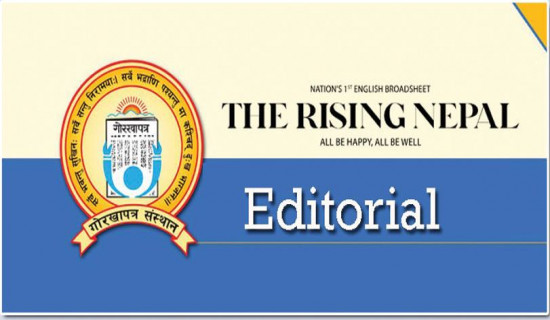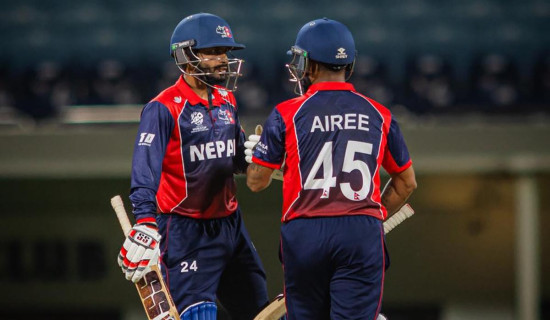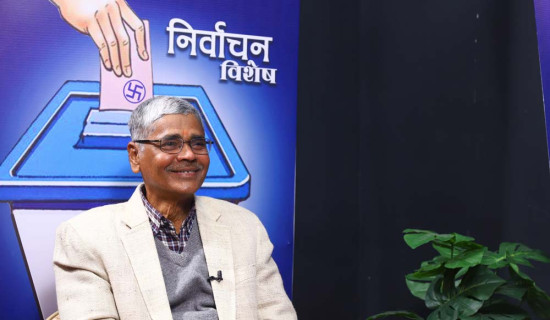- Tuesday, 3 February 2026
New Political Turn
Nepali politics has taken a new turn after two major political parties – Nepali Congress (NC) and CPN-UML – struck a midnight deal to form a ‘national consensus government’ on Monday. The two parties have claimed their agreement aimed to ensure stability through the amendment of the constitution promulgated in 2015. As per the informal deal, UML chair KP Sharma Oli and NC president Sher Bahadur Deuba will share the post of premiership on a rotation basis. Similarly, the NC and UML will take the posts of Chief Ministers of three provinces each and allow a Madhes-centric party to lead the Madhes Province. While asking Prime Minister Pushpa Kamal Dahal Prachanda to pave the way for the formation of the new government, the two parties have called upon the political parties represented in the House of Representatives (HoR) to join the new government.
Not only the ruling parties but even the general public is taken aback by the unexpected political development because many were unaware of what is going on behind the scene. The two-party accord has triggered strong reactions from ruling partners - CPN-Maoist Centre, Rastriya Swatantra Party (RSP) and CPN-Unified Socialist. According to Maoist Centre, Prime Minister Prachanda would face the parliament and not resign now. It has termed the NC-UML alliance unusual and unnatural, arguing that it would put the country on the regressive path. The RSP said that the new alliance was forged after the government decided to investigate into the corruption cases involving the influential figures. The Unified Socialist described it an opportunism and insisted that democracy needed a strong opposition.
However, the fringe parties such as Janata Samajbadi Party, Nepal, (JSP-N), Loktantrik Samajbadi Party (LSP) and Janamat Party said they were positive to be the part of the new coalition. The UML and Maoist Centre had formed their alliance four months ago but the increasing misunderstanding between them led to its disbanding. The leaders of both left parties used to say that their partnership would continue till the next general elections. UML's deputy general secretary Pradeep Kumar Gyawali disclosed that the new situation emerged after PM Prachanda approached the NC to constitute a national consensus government. But the largest party rejected the proposal and started the negotiations with the UML for the purpose.
The breakdown of UML-Maoist alliance shows that the political parties need to nurture the coalition culture with a mechanism to iron out their differences that surface when they hold different views and stances in handling the affairs of the state. News reports have said that the NC and UML that had a history of working together in the government in the past are in the mood of the changing provisions related to the proportional representation (PR) electoral system. They consider it as a source of instability but PR is an important tool to bring the representatives from Dalits, women and marginalised groups into the mainstream politics. Removing this provision might invite protests from the diverse communities.
Any constitutional amendments require two-thirds majority in the parliament. But the constitution should not be amended on the basis of numerical strength alone. There should be the consent of broad section of the populace. Virtually, all political parties should come to common ground for this initiative. Without securing the support of the Maoist Centre, the third largest force in the House, constitution amendment will not be possible. No matter which alliance holds the reins of the government, constitutional norms and values must not be underestimated.

















